“LEADERSHIP LAB: The Craft of Writing Effectively”
This log post, is transcribed totally from the above youtube video.
The credit of the content solely goes to Larry McEnerney, who leads the session in the video. I have just made notes/graphics complementing it.
Hope this helps the reader.
Readers first
-
Stop thinking about rules, start thinking about readers first
-
You are using your writing to help yourself think
-
When the reading and writing perspective clashes
-
readers slow down ( they re-read a lot)
-
they don’t understand - ( misunderstanding rises )
-
they get aggravated
-
and then they finally stop!
-
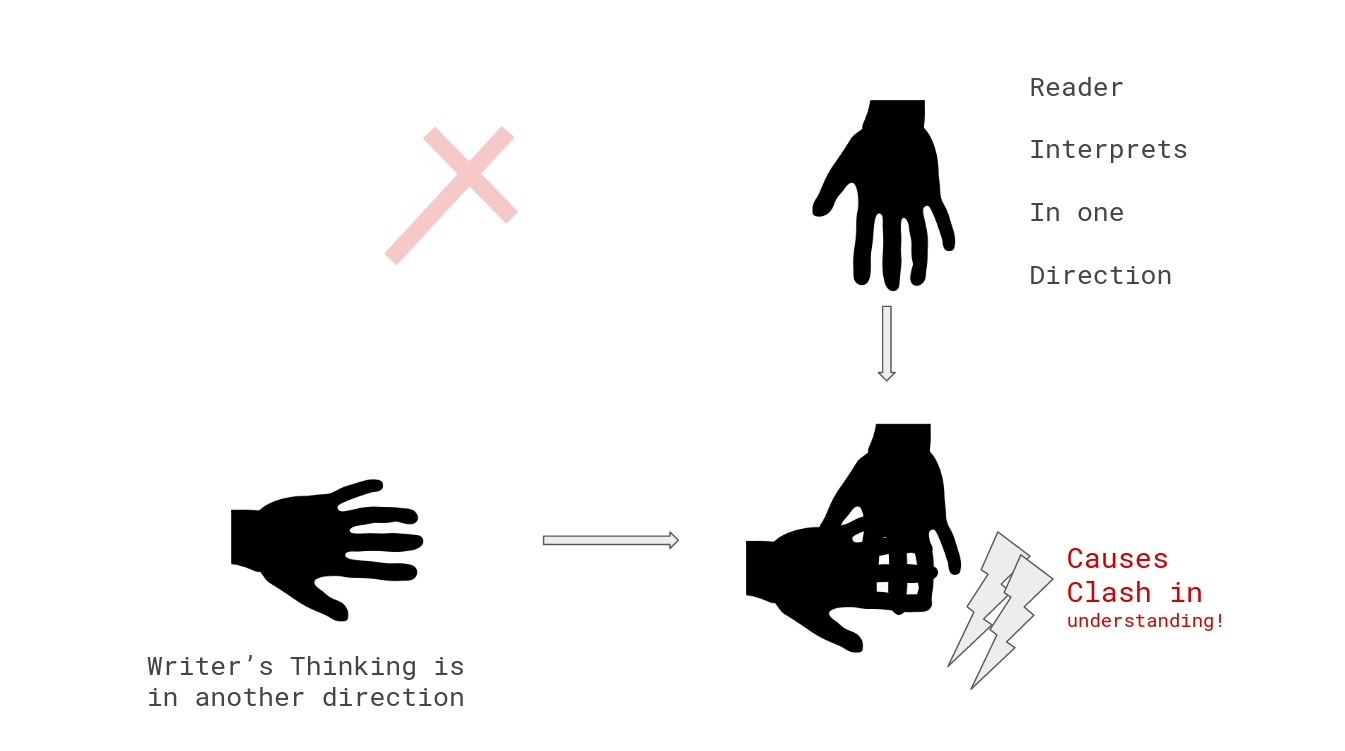
-
You have learnt writing in a system where the readers are paid to care about you (academia)
-
Why are the readers reading, because they want something valuable
-
Writing needs to be
-
clear
-
short
-
organised
-
persuasive
-
Valuable ( 80% important )
-
- “Writing is not about conveying your ideas to the readers, it’s about changing theirs”
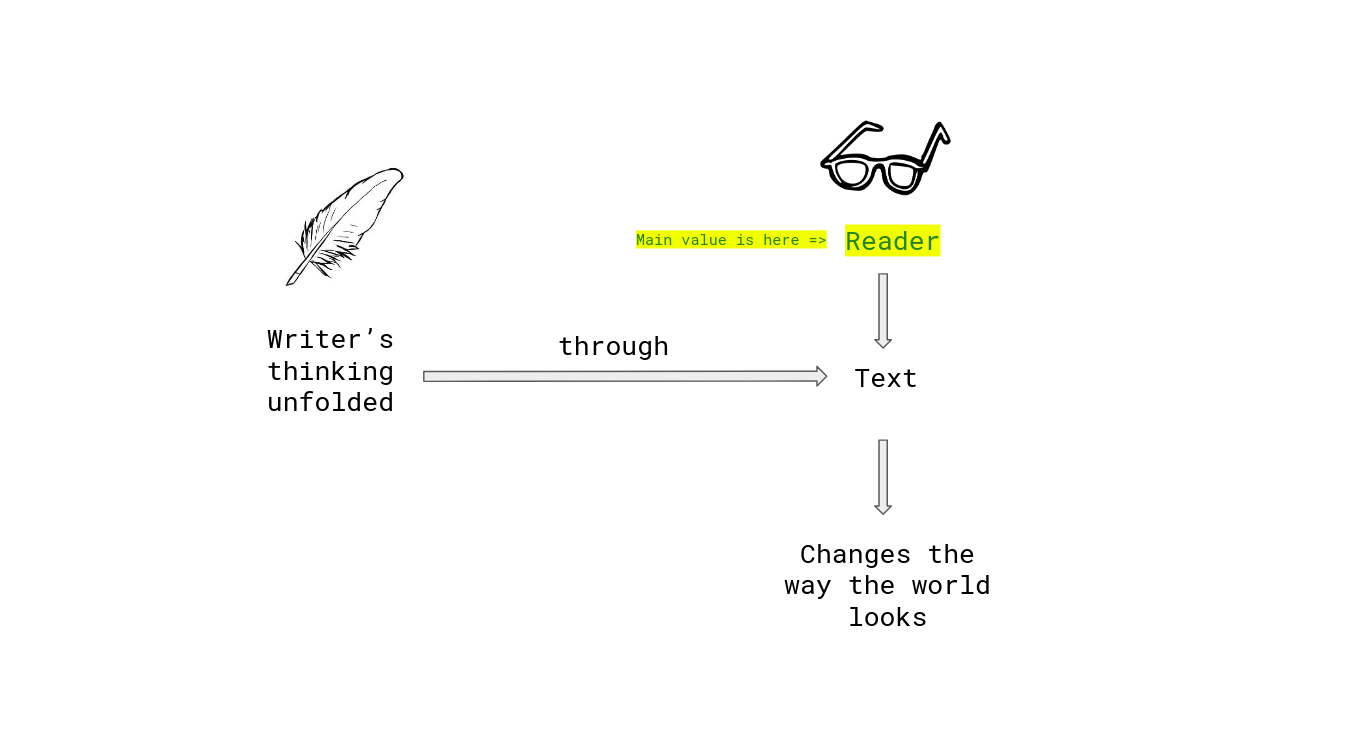
Readers function
-
Your readers have a professional function of challenging what you say.
-
You don’t have to explain them because, explanation takes place to tell you know.
-
First value is generated, put forth with a persuasive argument then explanation begins.
-
-
For example if your paper/article/post gets rejected by someone, and you ask why ?
-
They mostly will say, “I don’t understand it”
-
Then don’t try to Explain.
- Explaining, is revealing to the world what is inside your head, and no one cares what is inside your head, only what is valuable.
-
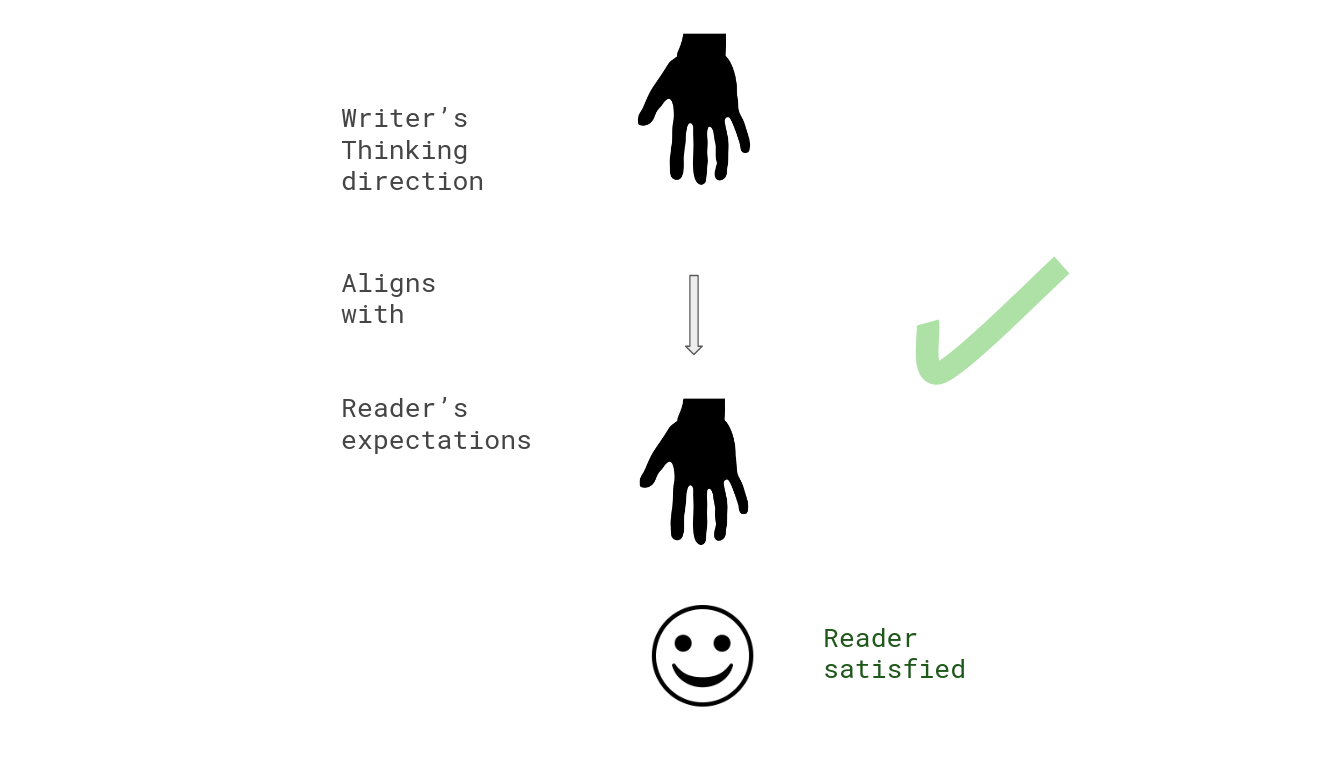
Original content
-
Do a favour and find the synapse in your brain storing the
-
words NEW, IMPORTANT and ORIGINAL and KILL IT!
-
Work might be new and original but it doesn’t always count as Knowledge.
- for example, counting how many people are there in your classroom and writing an article on it, might be a novel and original work but that’s not knowledge.
-
Conversations moving through time through a bunch of important people, decide what knowledge is.
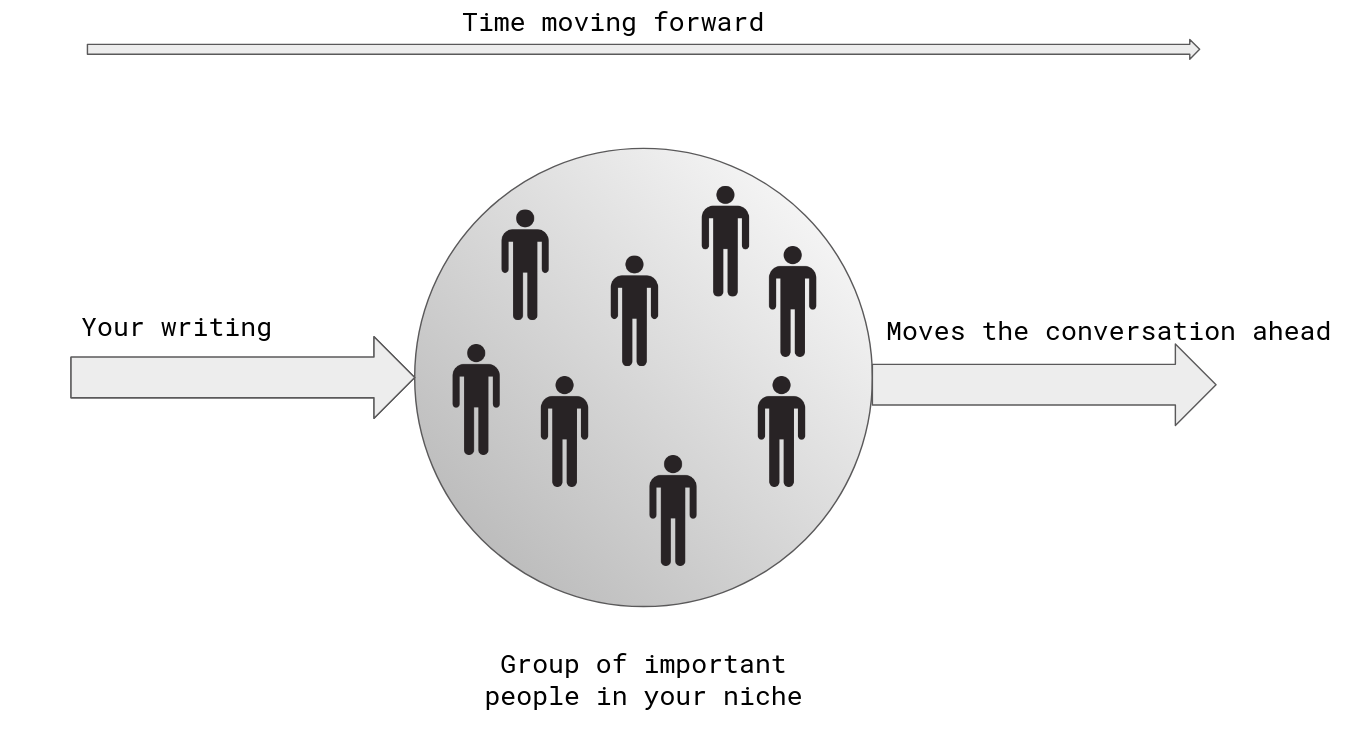
-
Invaluable hack
-
Take out 15 min/week reading articles in your field, print them out and go through every word and circle those words which is creating value to the readers
-
every community has it’s own code/style of writing
-
a set of words that communicate value
-
they are particular to a given community
-
-
If you have such a word list
-
When it’s time to push your own work/article/paper, you will look for such words in it
-
If there are no such words in the first two paragraphs
-
You are gonna dump the words from your invaluable word list.
-
you’ve got to know your readers.
Flow/transition words that have nothing to do with value
- and, if, however, but, nonetheless, because, unless
Functions of writing
Writing that challenges authority
Here’s a way to challenge a formidable authority in your field.
-
First acknowledge their knowledge and contributions to the field .
-
Let them know that there’s a small thing that they might have gotten wrong
-
You better have an argument, not an explanation.
-
You are gonna have to predict what they doubt
-
They will ask why and where they have gone wrong
-
Here’s where the introduction of your work comes into rescue !
-
Intro’s are a small bite to show why they are wrong
- Usually the first few para/pages decide whether they read or not
- If they decide to read it’s because they think your work might be valuable for them.
-
Helping readers understand a topic better
-
Here’s what your writing does
-
It helps a particular set of readers understand something they want to understand well
- All the other stuff, being structured, being creative, dealing with subjects is how you fulfil that function.
-
The readers are not gonna appreciate just because you wrote it.
-
The function of your writing is to move the conversation forward, it cannot do that if it’s in your desk drawer. So publish that work.
-
Your writing is a way to participate in the world, yes, but not by sharing your feelings or thoughts, but by changing other people’s thoughts.
- It’s not to communicate about you, it’s to change the way the readers think.
-
-
Anytime you think of a great writer/professor/author, it’s not what they have done that you think about, but what they have done in the space between the other heads in the community.
-
It’s to change what’s going on in the spaces between heads.
-
-
As a farmer is committed to his farm, miner to his mine, so a writer to the value one can provide.
Tension words
-
What do these flow/transition words have in common
-
Anomaly, but, inconsistent, however, although
-
They create tension, instability, challenge, contradiction, RED FLAG
-
Move from instability to stability.
-
Locate problems in specific reading communities.
-
Your readers are looking for a language of instability, inconsistency and tension
-
from here arises cost/benefit factor
-
does reading the work inform that something is costing them
-
or if reading the solution to the problem benefit them (the readers)
-
-
-
Good professional literature reviews will use it to enrich the problem at hand and move towards solution in the rest of the work
- Creating layers of tension on previous work, stating not only were they were wrong and because of that we all are moving towards more instability.
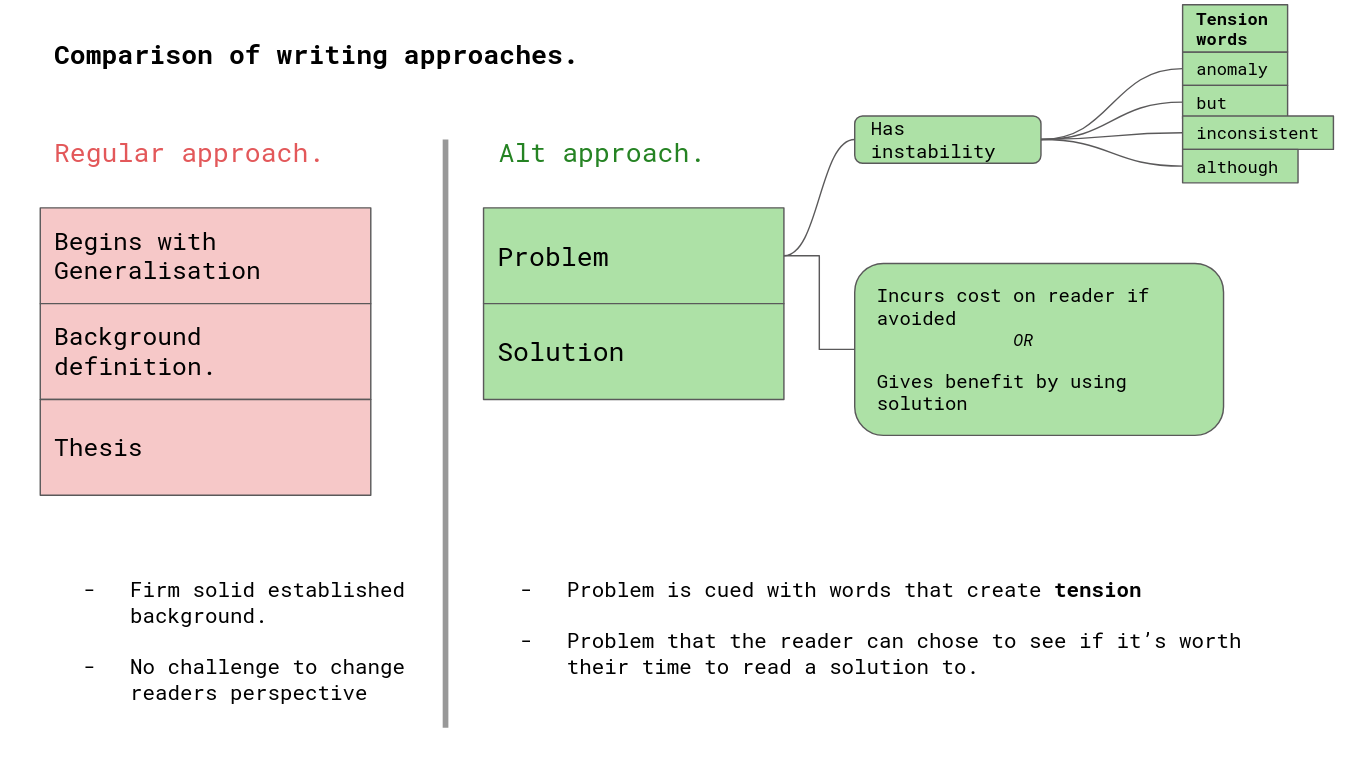
-
In history books too, one might argue that they build the background, but actually they are building the problem, to which they provide a solution in the rest of the work.
-
In case the introduction of the work/paper doesn’t really work, writers usually ask what do I need to do?
-
The readers usually will tell them , give me some more background.
-
And one will think they literally need to shower in on some more background
- But they don’t mean that, they mean, “I can’t figure out why this matters”
-
The background they need is the problem
-
Checklist
Here’s a checklist to the whole lecture, that I made to check the work of writing.
- Does the beginning have a language of instability, inconsistency and tension
- Does the solution reduce the cost or increase the benefit of the reader
- Does it help the reader understand something better
- Does it change the way the readers think
- Does it share your feelings, thoughts or change the other person’s perspective
- Does not necessarily have to be new, original, important
- Does it move the conversation of the group forward
